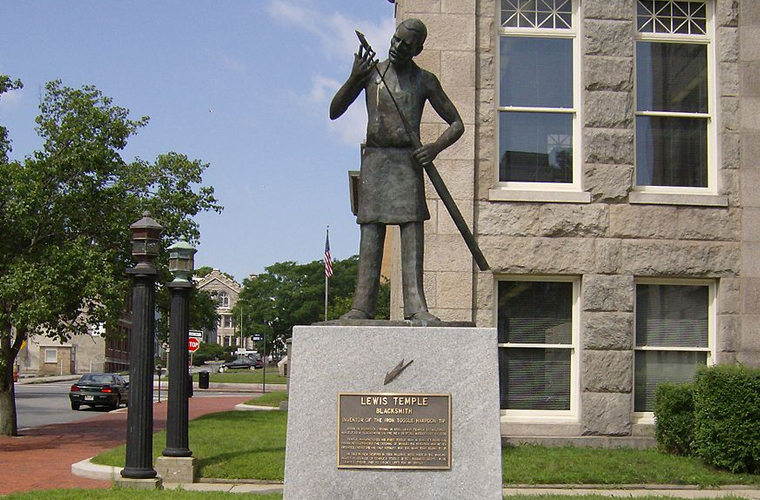Lewis Temple, a prominent figure in American history, was born in 1800 as a slave in Richmond, Virginia. Despite the challenges he faced as a young man, Temple’s determination and resilience led him to obtain his freedom. In 1829, he made the pivotal decision to move to New Bedford, Massachusetts, where he would leave an indelible mark on the community and the maritime industry as a whole. Upon arriving in New Bedford, Temple pursued a career as a blacksmith, leveraging his skills and expertise to carve out a niche for himself in the local economy. His dedication to his craft and his unwavering work ethic quickly earned him a reputation as a skilled artisan, and he soon became a respected member of the community.
Temple’s talents extended beyond the confines of the blacksmith shop, however. His keen intellect and innovative spirit drove him to explore new opportunities and push the boundaries of what was possible. It was this drive that ultimately led him to make a significant impact on the maritime industry. In the mid-19th century, New Bedford was a bustling hub of maritime activity, particularly in the whaling trade. Temple recognized an opportunity to revolutionize the way whaling ships operated, and he set out to develop a groundbreaking invention that would change the course of maritime history.
Temple’s most notable achievement came in 1848 when he patented the “Temple Toggle,” a revolutionary improvement to the whaling harpoon. This innovative device featured a pivoting head that allowed the harpoon to remain securely embedded in the whale, reducing the risk of it escaping and ensuring a more successful hunt. The Temple Toggle quickly gained widespread acclaim within the industry and became an essential tool for whalers across the globe.
Temple’s invention not only transformed the efficiency of whaling expeditions but also had a profound impact on the safety of whalers themselves. By minimizing the risk of a harpooned whale breaking free and retaliating, Temple’s invention helped safeguard the lives of countless seafarers who braved the treacherous waters in pursuit of their quarry. Beyond its practical implications, the Temple Toggle also held significant economic value. Its effectiveness in increasing the success rate of whaling expeditions translated to higher yields of whale oil and other valuable resources, bolstering the profitability of the industry as a whole.
Temple’s ingenuity and contributions did not go unnoticed. His invention earned him widespread recognition and solidified his status as a pioneering figure in maritime innovation. His impact extended far beyond the shores of New Bedford, reverberating throughout the maritime world and leaving an enduring legacy that endures to this day. In addition to his professional accomplishments, Temple’s personal journey from slavery to success serves as a testament to his resilience and determination. His story is a powerful reminder of the potential for triumph over adversity and the ability to effect meaningful change in the face of seemingly insurmountable obstacles.
Lewis Temple’s legacy continues to inspire and resonate with individuals across generations, serving as a beacon of hope and perseverance. His remarkable achievements and unwavering spirit stand as a testament to the power of human ingenuity and the enduring impact of innovation on society at large. As we reflect on his contributions, we are reminded of the profound influence that one individual can have on the course of history, and we honor Lewis Temple as a trailblazer whose legacy will endure for generations to come.

